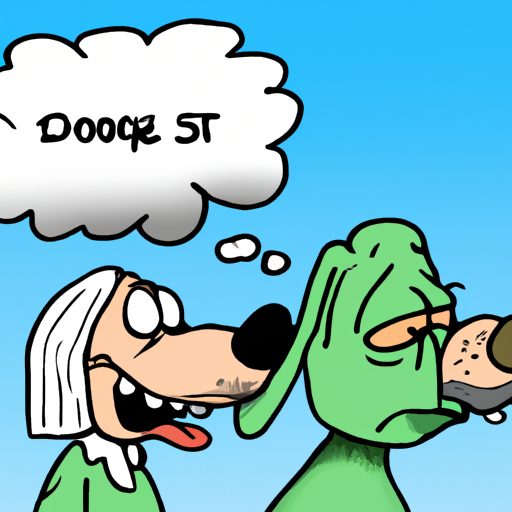As a caregiver, you’ve probably noticed that your furry friend’s breath isn’t always the most pleasant. There are numerous reasons why your dog’s breath might stink. Let’s dive into the most common ones.
H2: The Importance of Dental Hygiene
Just like humans, dogs require regular dental care to maintain a healthy mouth. Neglecting oral hygiene can lead to plaque build-up and gum disease, which are common causes of bad breath.
- Regular Brushing: Brush your dog’s teeth at least three times a week. There are plenty of dog-friendly toothpastes available.
- Dental Treats: Dental treats can help remove plaque and keep your dog’s breath fresh.
- Professional Cleaning: If you notice persistent bad breath, it might be time for a professional cleaning at the vet’s office.
H2: Diet Impact
What your dog eats can significantly affect their breath. Some foods can cause bad breath, while others can help freshen it.
- Bad Breath Foods: Meat-heavy diets can lead to stinky breath. Try to balance it with other types of food.
- Fresh Breath Foods: Foods like carrots and apples can help clean your dog’s teeth and freshen their breath.
H2: Health Concerns
Sometimes, bad breath can be a sign of more serious health issues. If bad breath persists even after improving dental care and diet, it might be time to visit the vet.
| Health Issue | Symptom |
|---|---|
| Kidney Disease | Breath smells like urine |
| Diabetes | Sweet, fruity breath |
| Liver Disease | Foul-smelling breath |
H2: Natural Remedies
There are several natural remedies that can help combat your dog’s bad breath.
- Parsley: Parsley is a natural breath freshener. You can add some chopped parsley to your dog’s food.
- Coconut Oil: Coconut oil has antibacterial and antifungal properties. Add a spoonful to your dog’s food every day.
- Apple Cider Vinegar: A small amount of apple cider vinegar in your dog’s water can help freshen their breath.
H2: Breath-Freshening Toys
Another effective way to combat bad breath is by providing your dog with breath-freshening toys and chews.
- Dental Chews: Dental chews are designed to clean your dog’s teeth and freshen their breath as they chew.
- Breath-Freshening Toys: Some toys are designed with nubs and ridges that help clean teeth and freshen breath.
Frequently Asked Questions
Q: How often should I brush my dog’s teeth?
A: Ideally, you should brush your dog’s teeth at least three times a week.
Q: What can I add to my dog’s diet to help with bad breath?
A: Foods like carrots, apples, parsley, and coconut oil can help freshen your dog’s breath.
Q: When should I take my dog to the vet for bad breath?
A: If bad breath persists even after improving dental care and diet, or if the breath smells like urine or is unusually sweet, it’s time to visit the vet.
Remember, as a caregiver, being mindful of your dog’s oral health is as important as taking care of their overall wellbeing.



